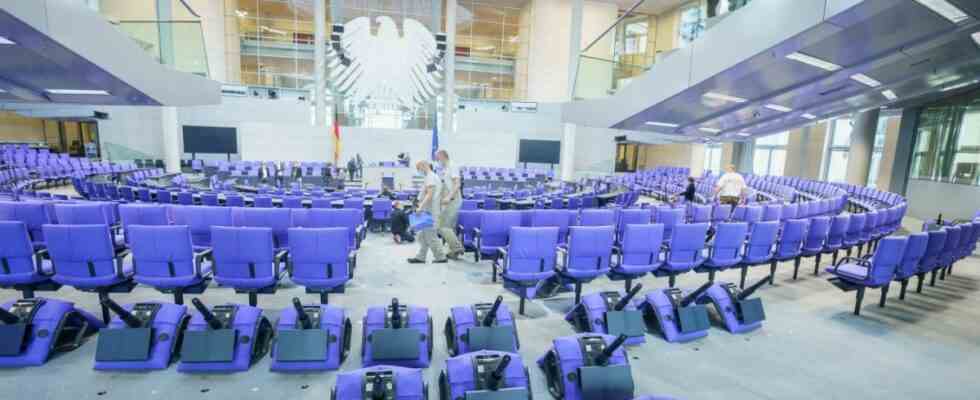The traffic light coalition has agreed on a reform of the electoral law, with which the Bundestag is to be reduced to 598 MPs. There are currently 736 MPs. The factions of the SPD, Greens and FDP want to present a corresponding draft law this Monday. He lies the Süddeutsche Zeitung already before.
In the past twenty years, the Bundestag has grown in size. This was due to the overhang and compensation mandates. Overhang mandates arise when a party wins more direct mandates in a federal state than it is entitled to according to the result of the second vote. To ensure that the other parties are not disadvantaged as a result, there have also been compensatory mandates since the 2013 federal election.
The draft law of the traffic light factions now provides for a radical cut. There should be no more overhang and compensation mandates in the future. As a result, the Bundestag will always have its standard size of 598 MPs. As a result, however, it can happen that a candidate who achieves the most votes in a constituency is still not allowed to enter the Bundestag.
An example: If the CSU in Bavaria won all 46 direct mandates, but was only entitled to 41 seats in the Bundestag based on its second vote result, the five constituency winners with the lowest first vote result would not get a Bundestag mandate.
The number of Bundestag constituencies in Germany – there are currently 299 – should not be changed. This avoids a complicated reshaping of the constituencies. The so-called basic mandate clause should also be retained. It stipulates that a party that fails at the five percent hurdle but wins at least three direct mandates can still enter the Bundestag according to its second vote result. The left benefited from this regulation in the last federal election. Even if no one in the traffic light coalition says it openly: by maintaining this exemption, the traffic light coalition wants to secure the approval of the left for the new electoral law.
The chairmen of the three traffic light groups are also trying to reach an understanding with the CDU and CSU. On Sunday, they therefore sent their draft law to Union faction leader Friedrich Merz and offered talks. The CSU in particular has so far vehemently opposed a regulation such as that now being sought by the traffic light. CSU regional group chief Alexander Dobrindt even called it unconstitutional.
However, there was a comparable regulation for a while in the Bavarian state electoral law. In addition, many constituencies are now being won with low results. In the last federal election, there were more than 80 constituencies in which the winner did not even get 30 percent. One constituency was even won with 18.6 percent.
In order to make the meaning of the respective votes clearer, the coalition now also intends to change names. In the future, the first vote will be called the “constituency vote” – and the second vote will be called the “main vote”.

